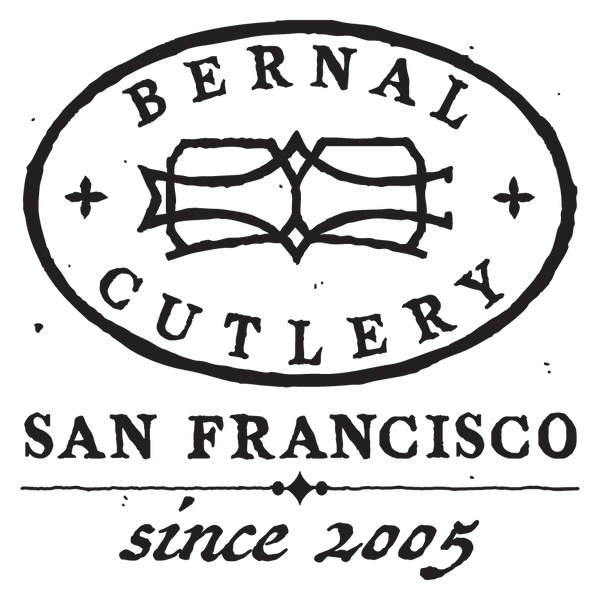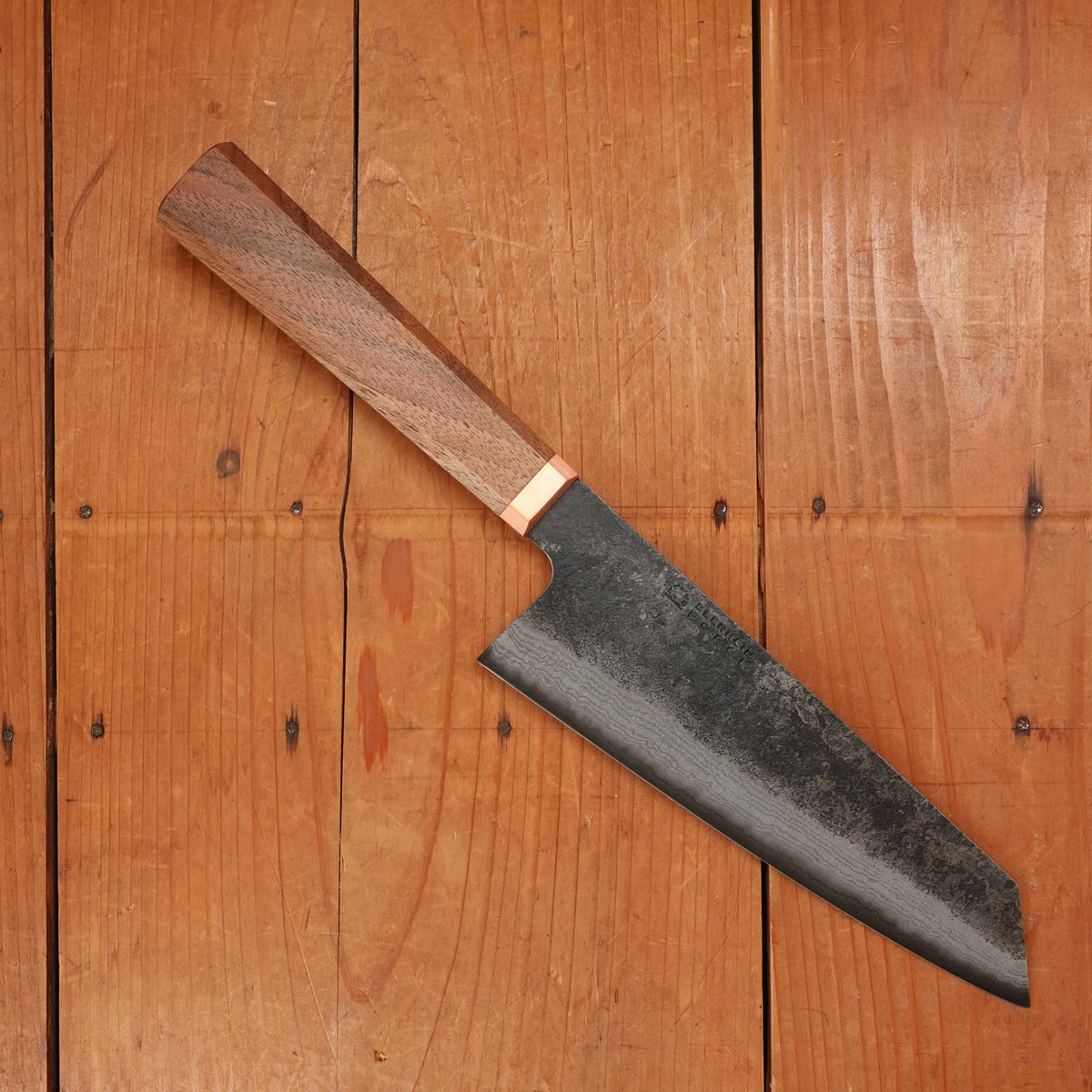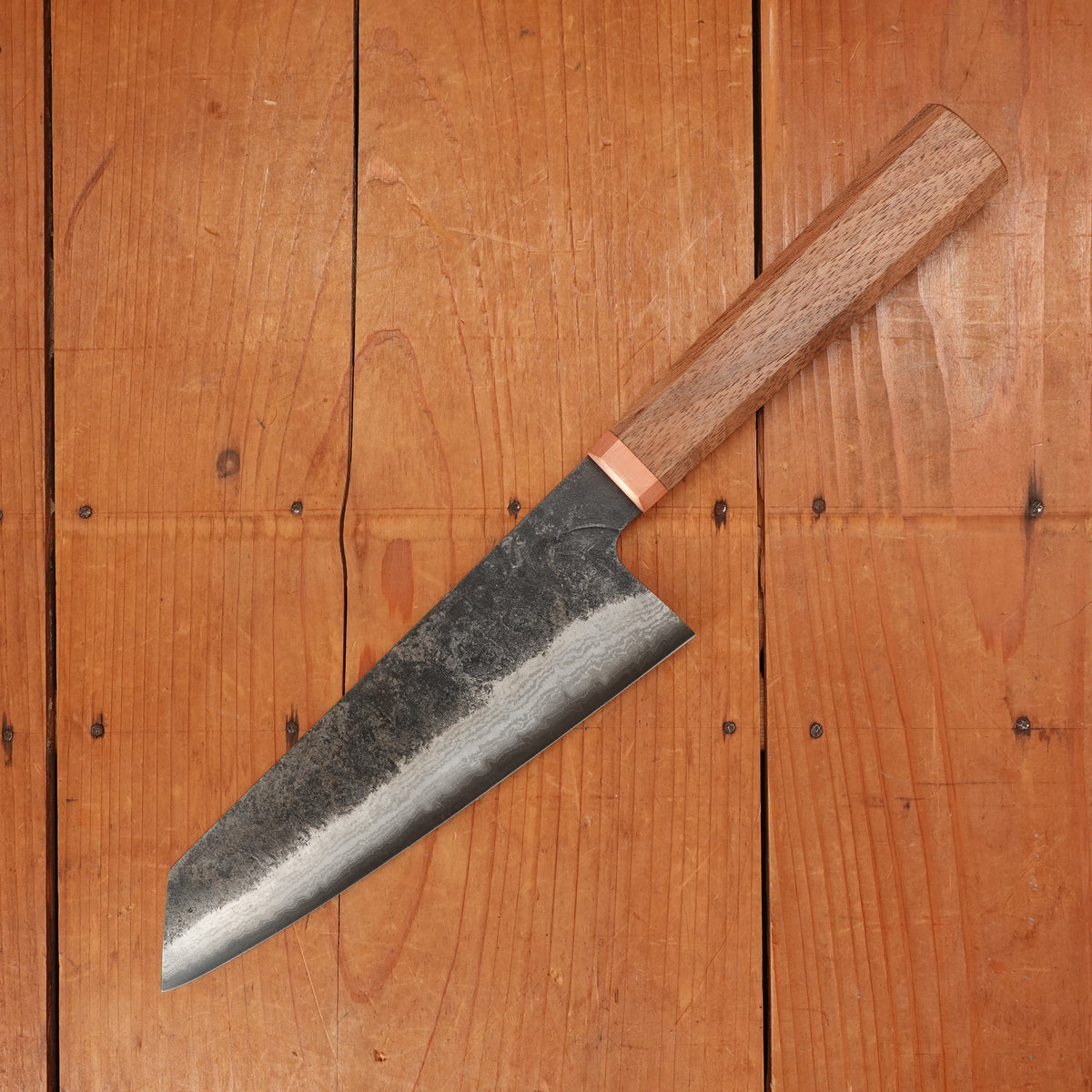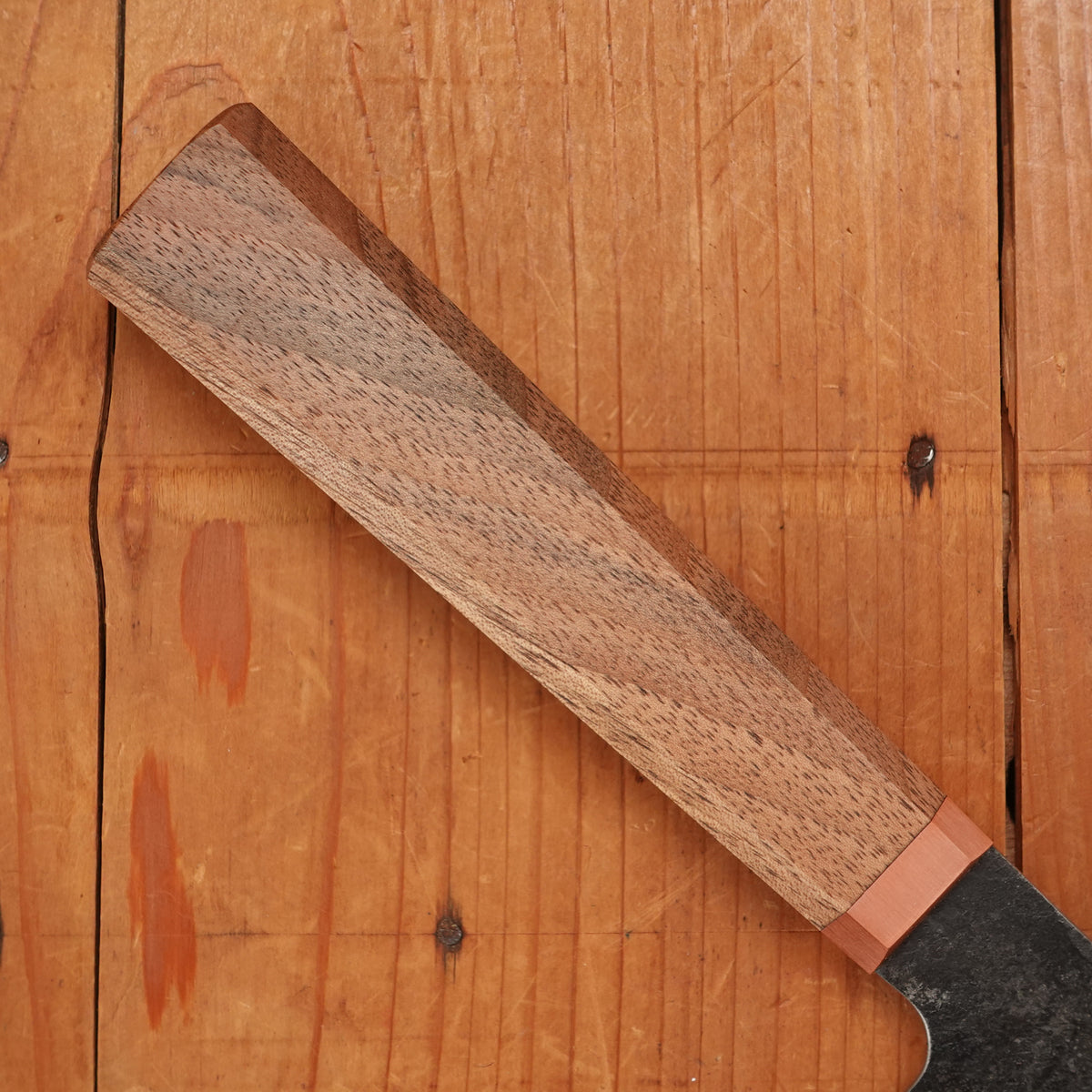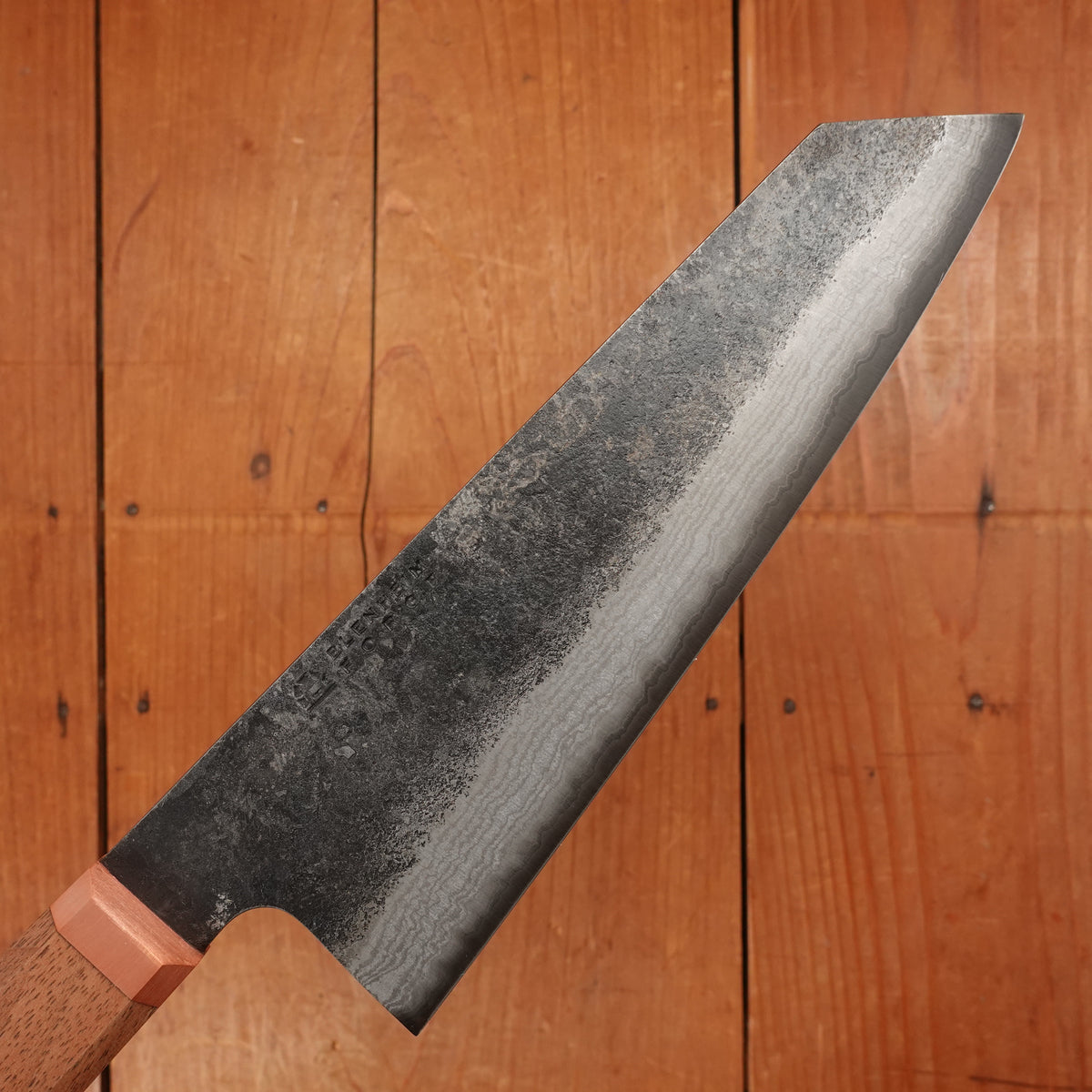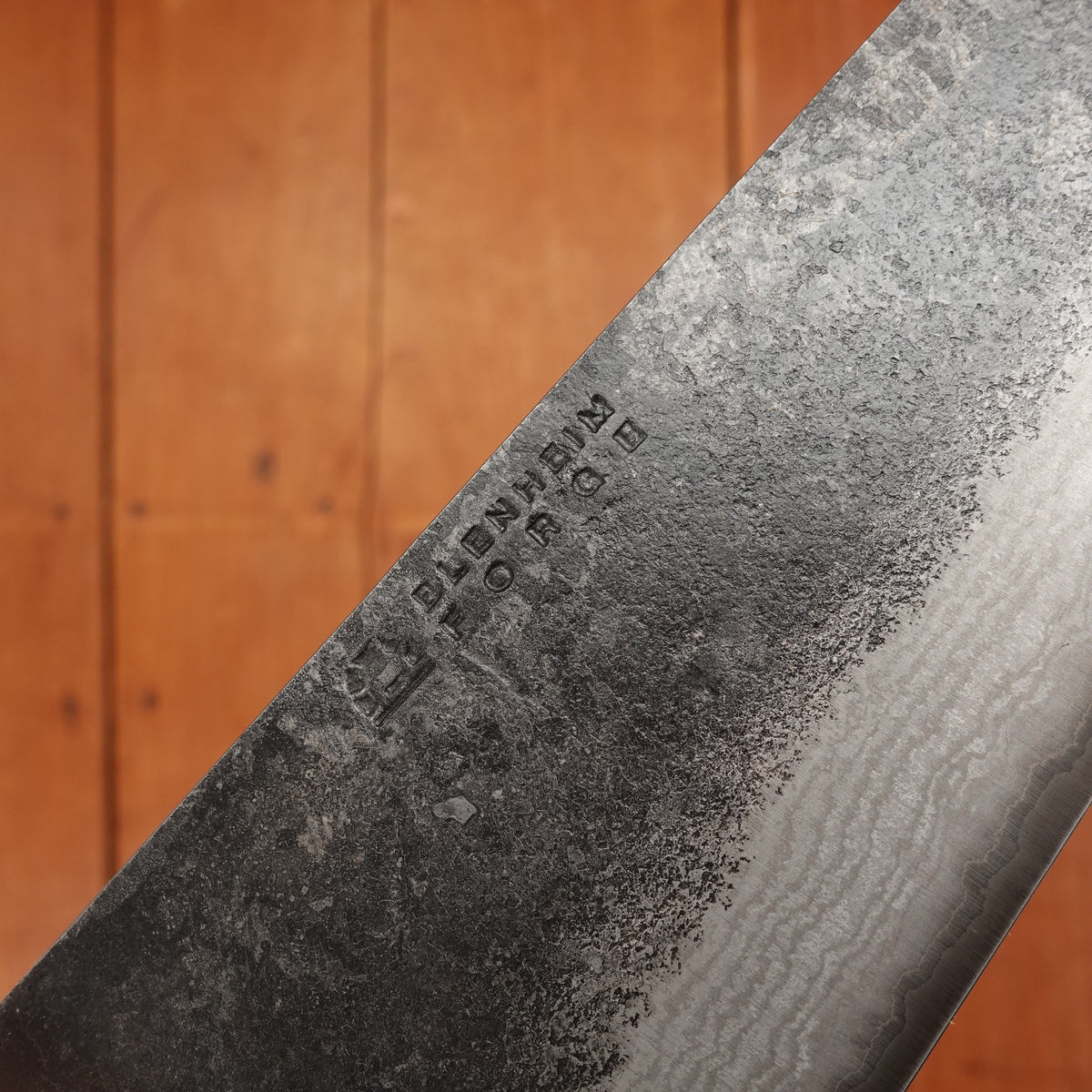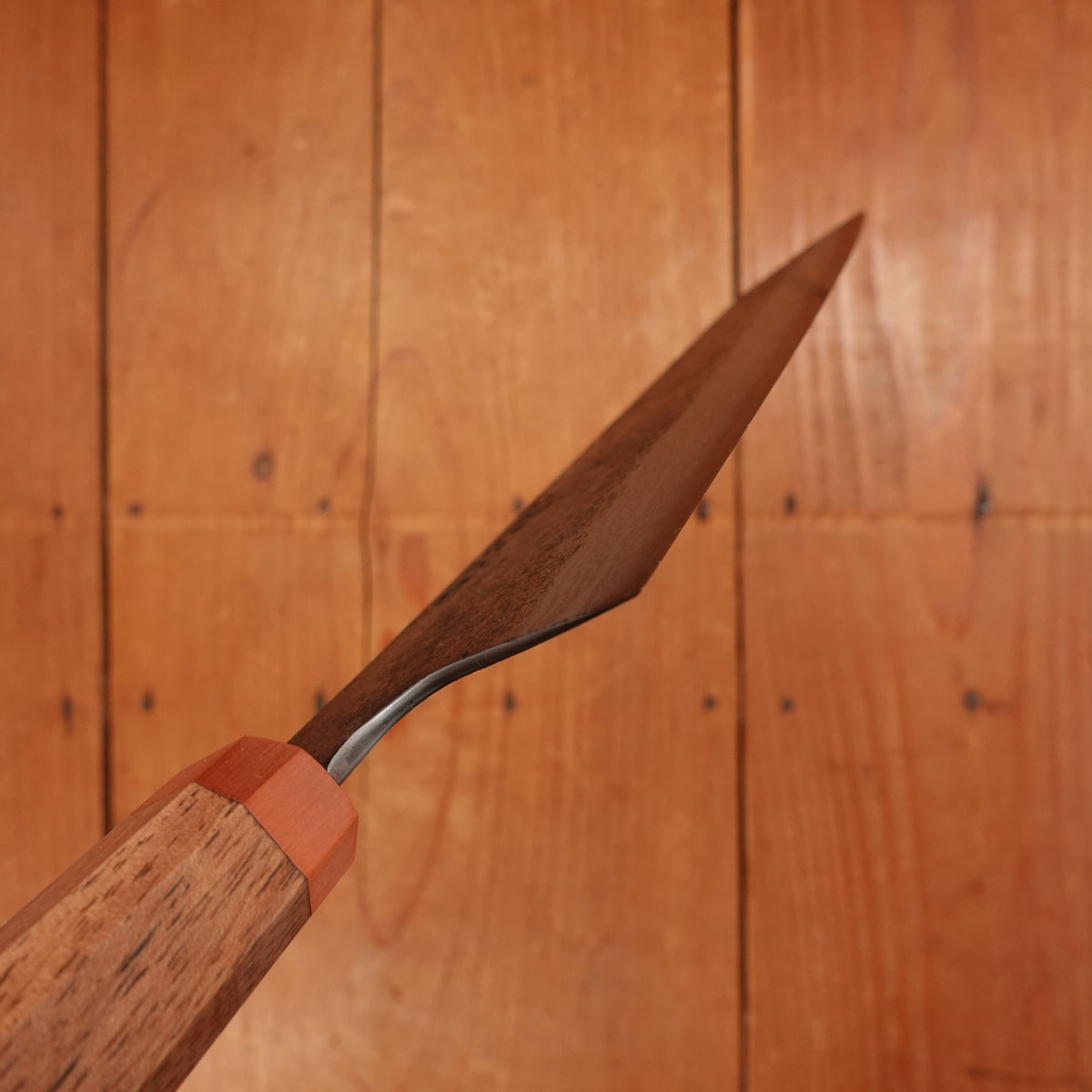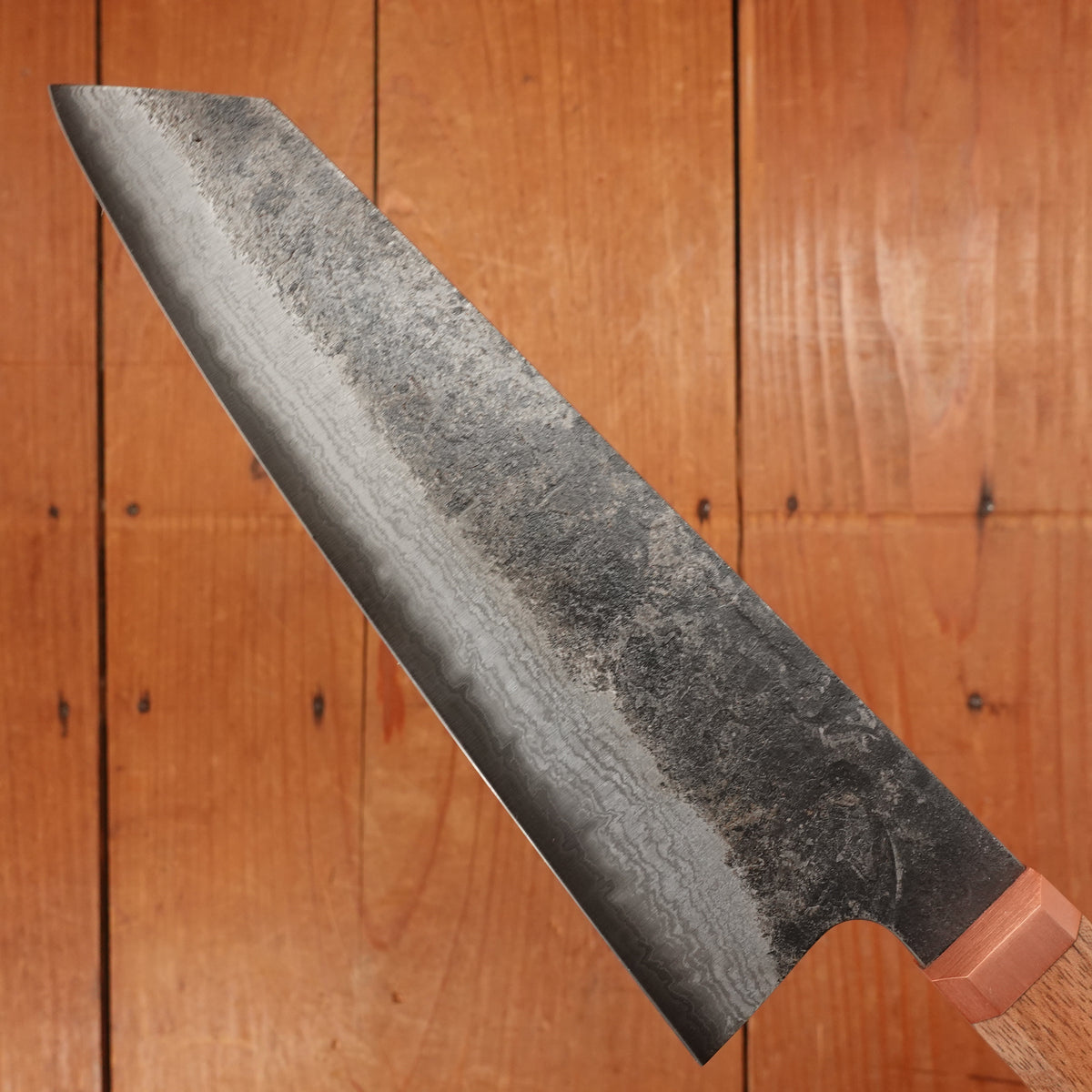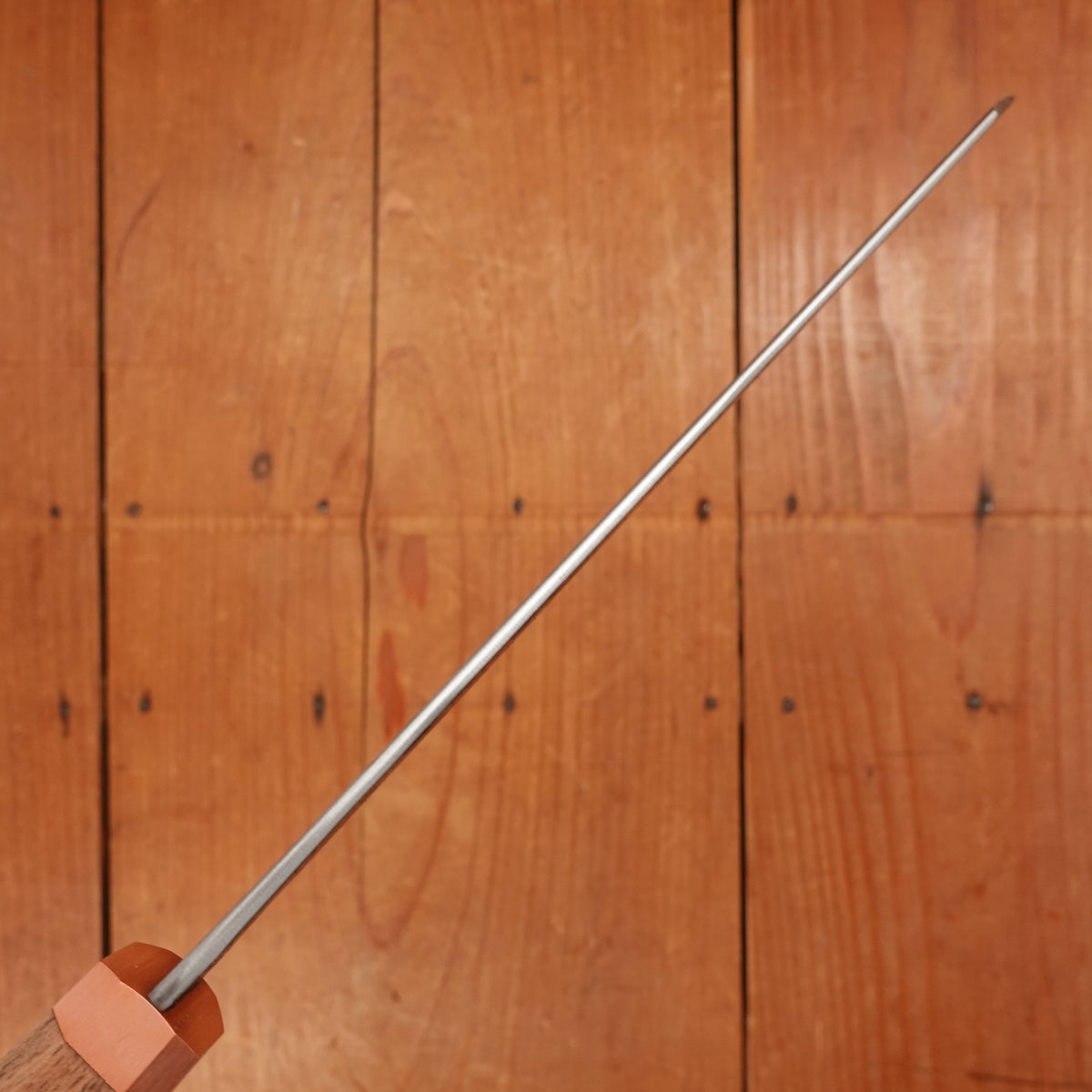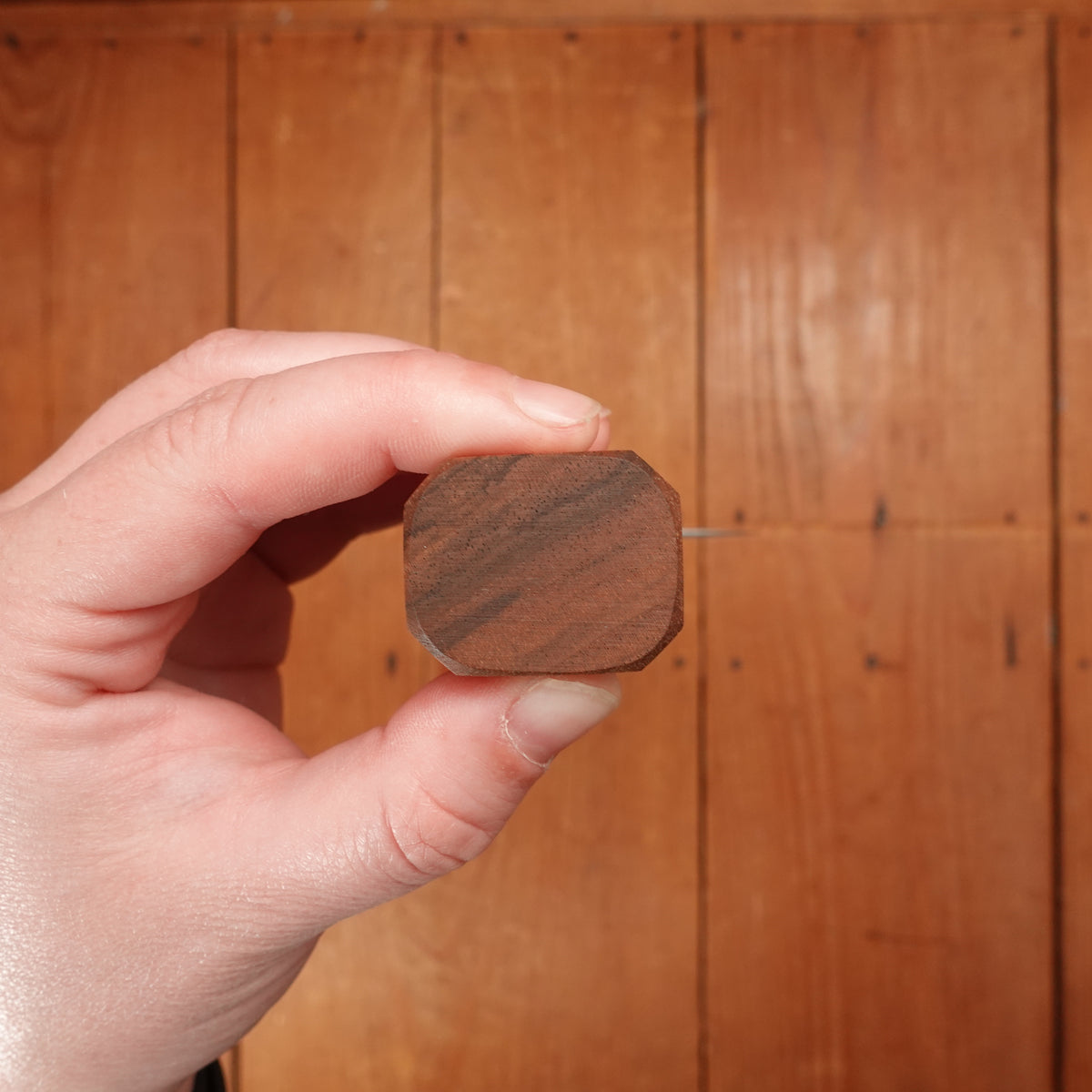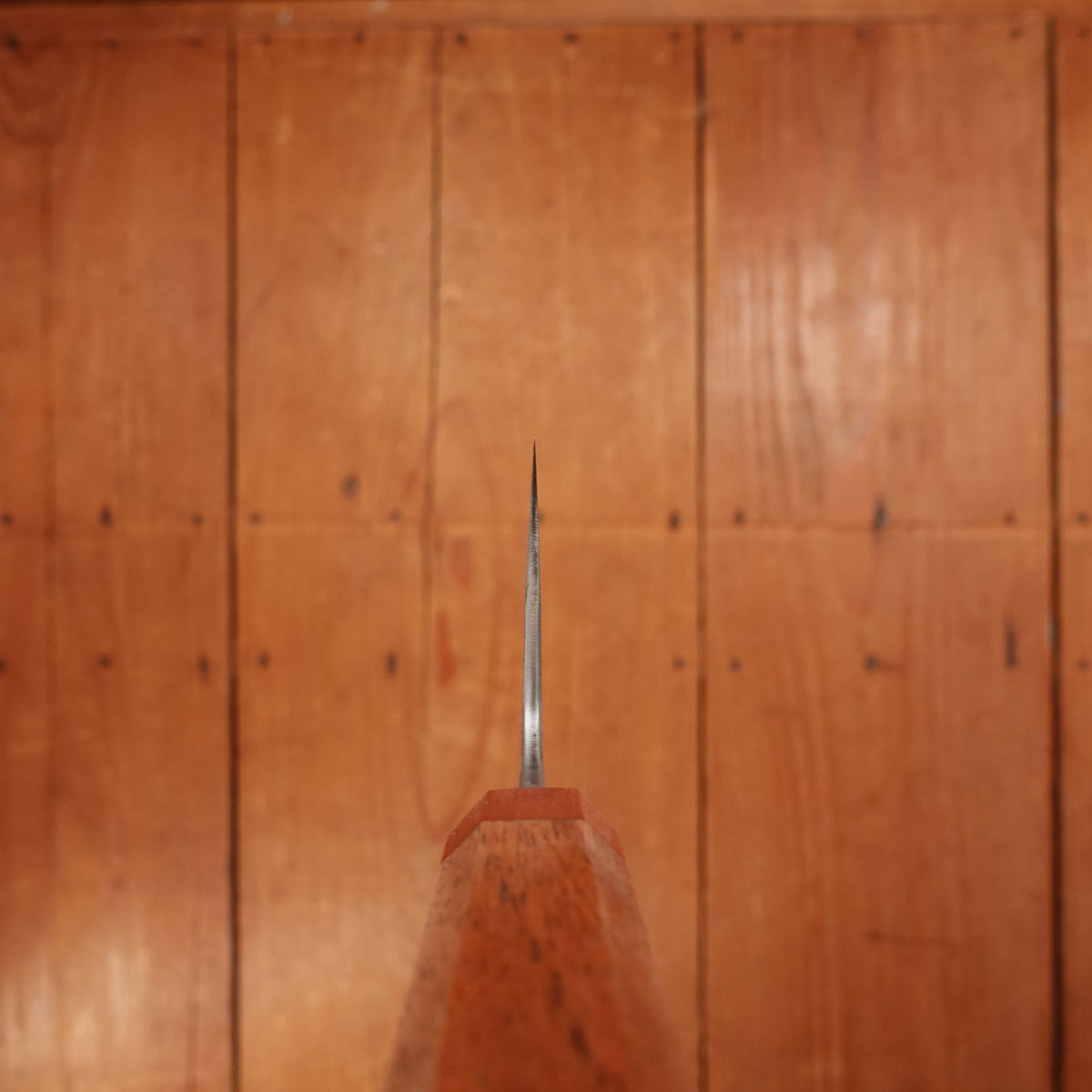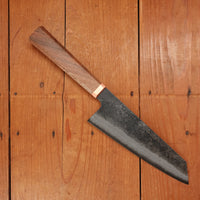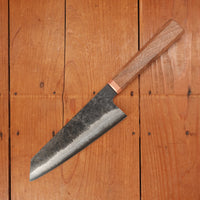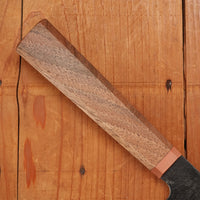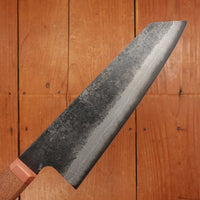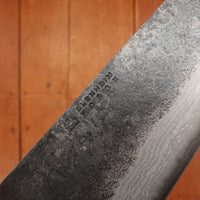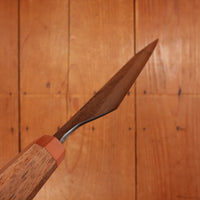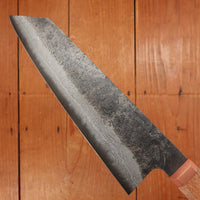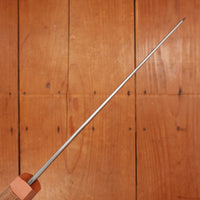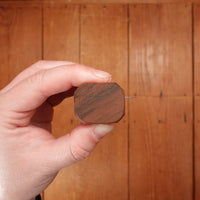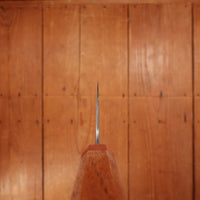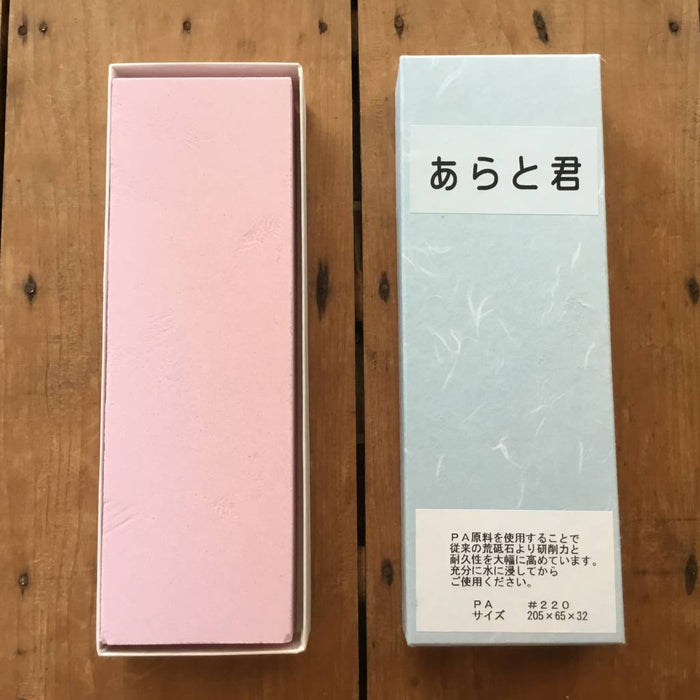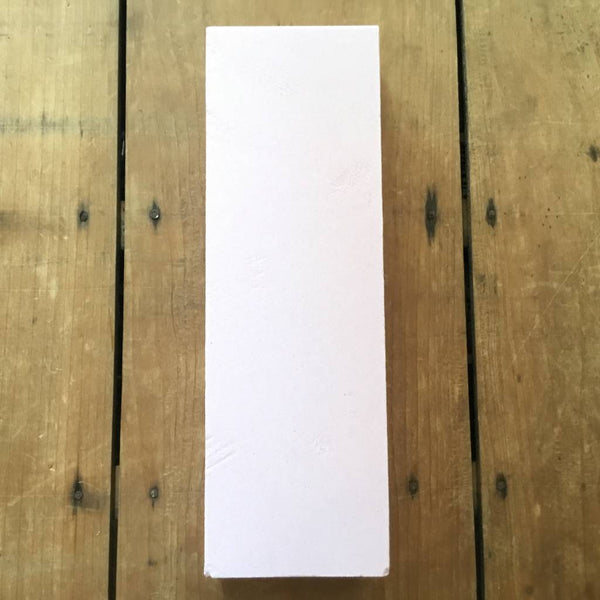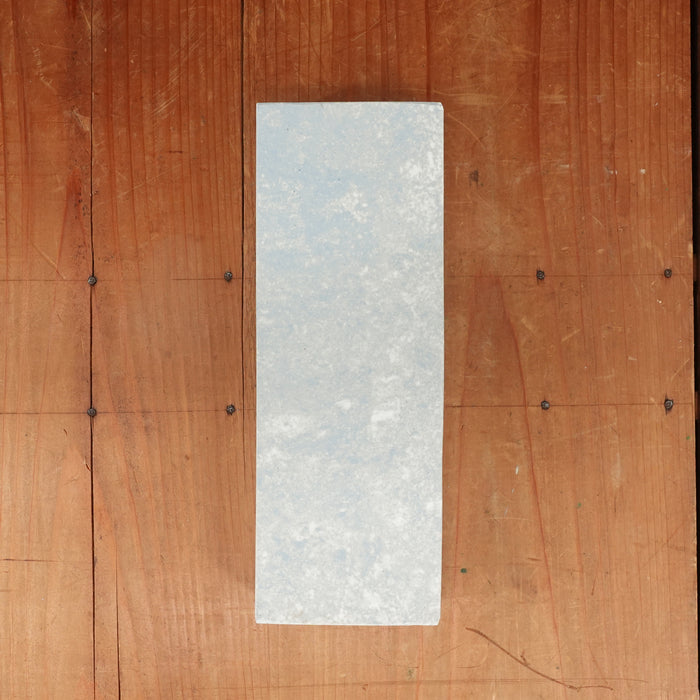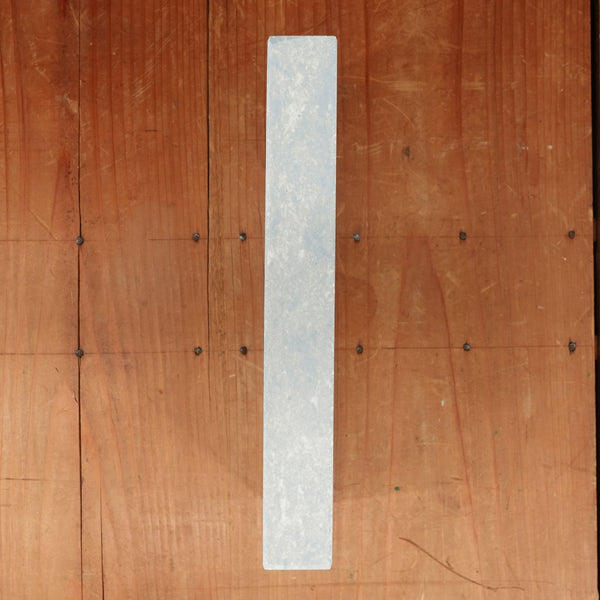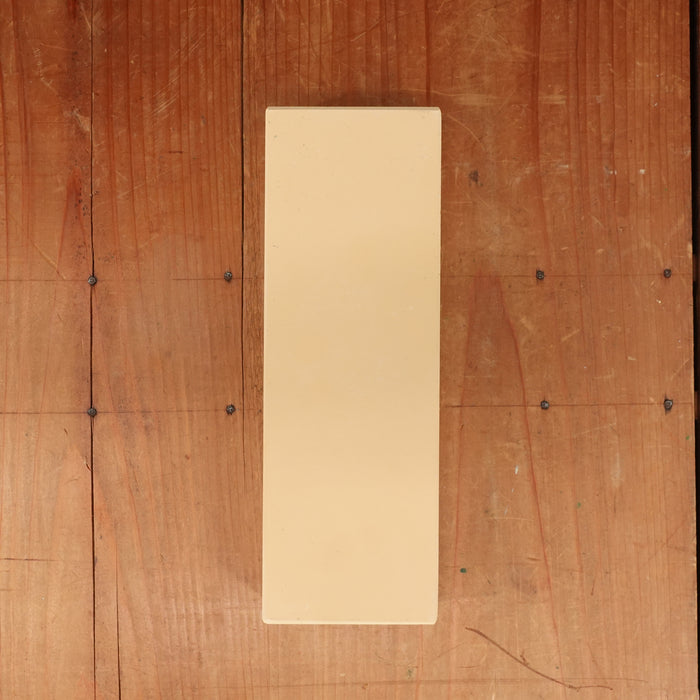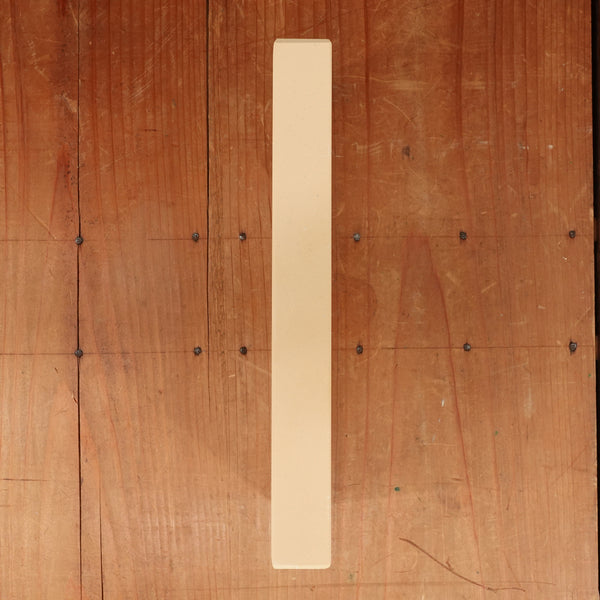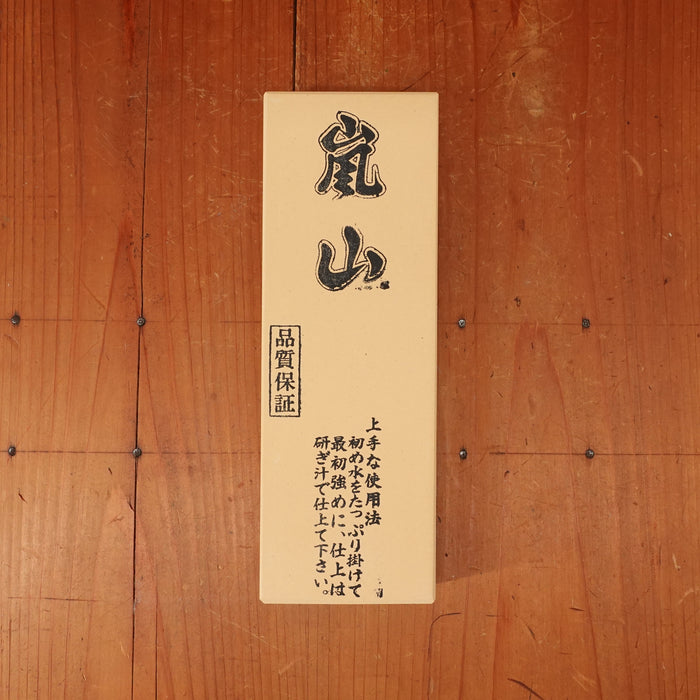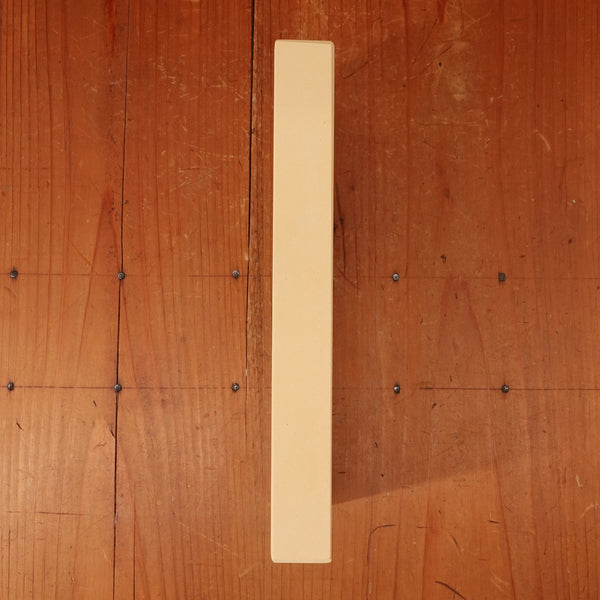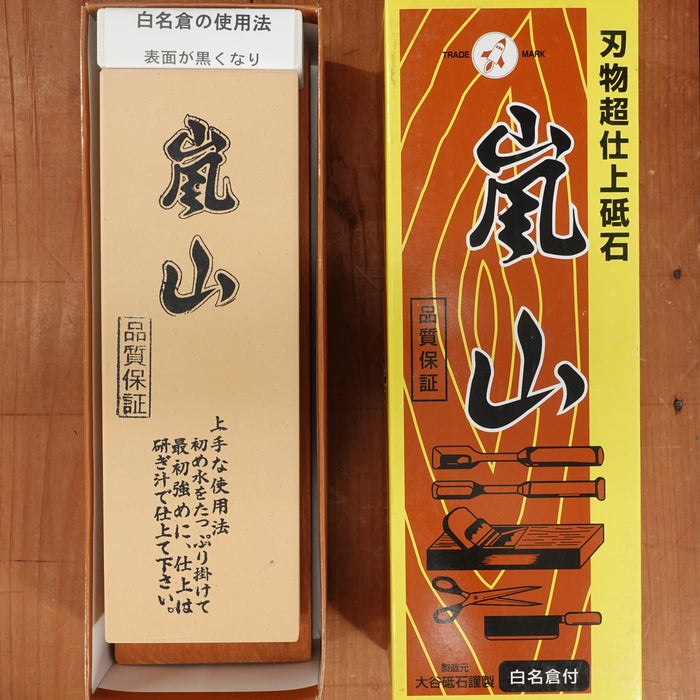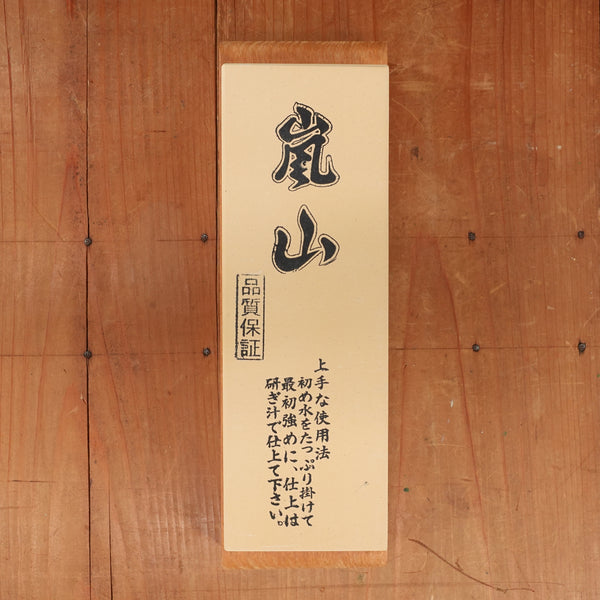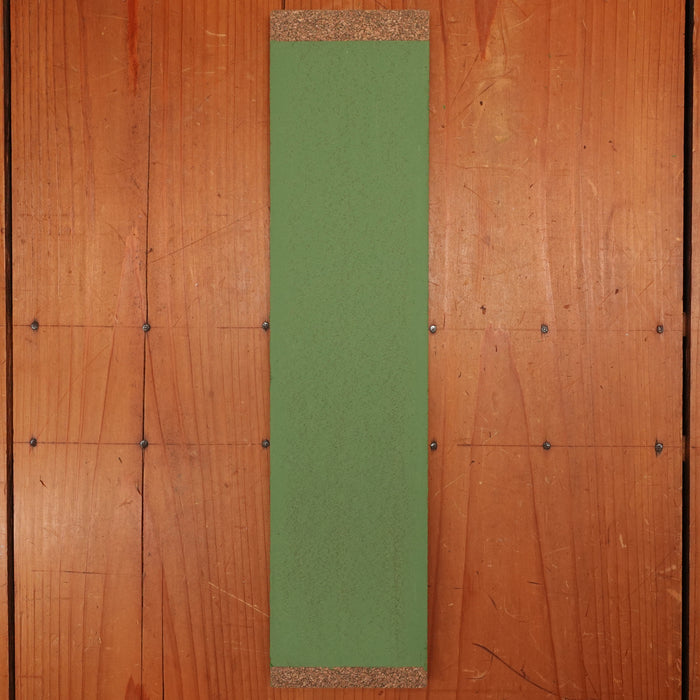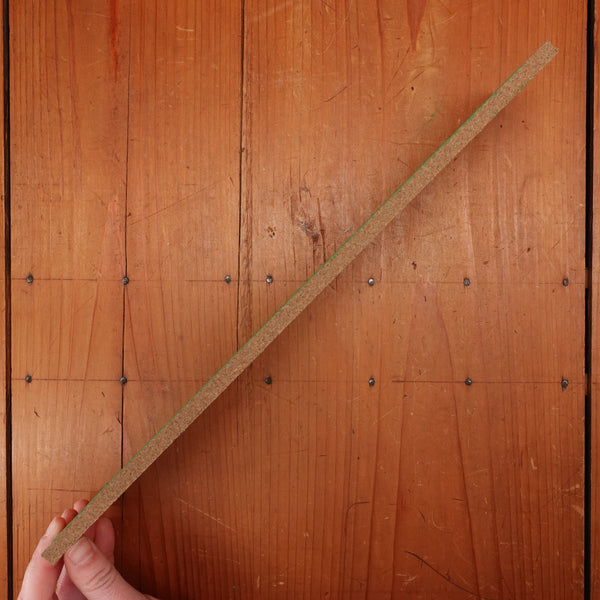Blenheim Forge 180mm Bunka Iron Clad Aogami 2 Walnut & Copper
-
Regular Price
-
€332,63
-
Sale Price
-
€332,63
-
Regular Price
-
Sold Out
-
Unit Price
- per
- Regular Price
- €332,63
- Sale Price
- €332,63
- Regular Price
- Unit Price
- per
Blenheim Forge Classic Range 180mm bunka knife. Aogami 2 carbon steel core with iron damascus acid etched cladding with kurouchi finish. Walnut & Copper octagon handle.
Forged, ground and handles made by hand at the Blenheim Forge works in Peckham South London. Blenheim Forge knives are made with Japanese aogami 2 tungsten carbon steel and English woods and handle materials.
Their aogami 2 is characterized by a nice sharpenability and good cutting feel and edge life at medium and fine finishes (3000 to 6000+ Japanese grit scale



Listed Length: 180mm
Total Length: 316mm
Edge Length: 177mm
Heel Height: 55mm
Spine Thickness: 2.3mm
Weight:
Orientation: Ambidextrous
Blade Type: Iron Clad Carbon
Steel Type: Aogami 2 (Blue Paper #2)
Steel Hardness (HRC):
Maintenance: More Attention
Handle Type: Japanese (wa)
Handle Material: Walnut with Copper Ferrule
Dive Deeper
Medium-Fine finish - Japanese
Sharpening Supplies
Stones & Accessories selected specifically for this knife.
Arato-kun #220 Extra Coarse Grit Whetstone
- Regular Price
- €29,61
- Sale Price
- €29,61
- Regular Price
-
- Unit Price
- per
Bernal Cutlery Takarazukushi 1200 Grit Blue Marble Semi-Soft Ceramic Japanese Whetstone
- Regular Price
- €64,44
- Sale Price
- €64,44
- Regular Price
-
- Unit Price
- per
Bernal Cutlery Takarazukushi 4000 Grit Yellow Semi-Hard Resinoid Japanese Whetstone
- Regular Price
- €71,40
- Sale Price
- €71,40
- Regular Price
-
- Unit Price
- per
Arashiyama #6000 Whetstone Stone NO Wooden Base
- Regular Price
- €50,50
- Sale Price
- €50,50
- Regular Price
-
- Unit Price
- per
Arashiyama #6000 Whetstone With Nagura Stone and Wooden Base
- Regular Price
- €53,99
- Sale Price
- €53,99
- Regular Price
-
- Unit Price
- per
Bernal Cutlery Monodiachrome™ Precharged Deburring Strop
- Regular Price
- €34,83
- Sale Price
- €34,83
- Regular Price
-
- Unit Price
- per
Aogami 2 (Blue Paper #2)

